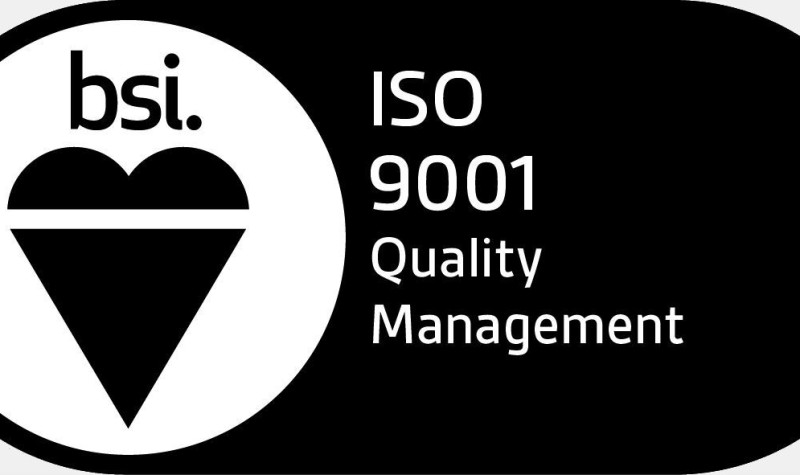Quality standards or just charade?

I spend a lot of time attending finance seminars on all manner of subjects. This week I was at a very interesting seminar about quality standards in industry as defined by the BSI (British Standards Institute), the people with the Kitemark – a logo that has the same brand awareness as Pepsi (something they are very proud of). The BSI is the UK’s National Standards Body. The focus was on the insurance industry and how they relate to accredited voluntary quality standards. Basically, they give much recognition to quality standards.
I have personal experience of this. Some years ago I took my Advanced Driving Test through the Institute of Advanced Motorists. I passed and joined. A handful of expensive insurance companies offered me a discount to an easily beatable price by simply phoning any insurance broker. So I’d made an effort, simply to be safer, to improve my risk profile, and received no benefit beyond personal satisfaction. Plus the fact that I can now say, for any fans of Rainman, “I’m an excellent driver”.
The idea of standards in business is in essence a noble one, and the BSI tagline is “…making excellence a habit”. Not sure why they have an ellipsis in there. There is a certain amount of naiveté that a standard can be acquired and then maintained. I’ve worked in companies that have gone for the British Standard. There are always some workers who see it as a waste of time or a constraint, as it means doing things differently. Irrational, maybe, on the part of the workers, but then people are irrational. The idea that the standard then persists is open to challenge. And the idea that standards here can be replicated in countries outside the First World is, I believe, doubtful.
In recent years we’ve seen companies under such intense pressure that whilst they may have accreditation for these standards of quality, that hasn’t stopped donkey burgers entering the human food chain; or people ignoring hygiene standards and climbing into food manufacturing equipment to fix it, as seen on Panorama. VW happened to get caught, but I bet that they’re the tip of the iceberg in terms of standards cheats hidden in proprietary software. As costs are under pressure, on the one hand, it may be of value to have the Kite Mark; but on the other, working practices will be more pragmatic.
Jamie, Lord Lindsay was present at the talk and he is very involved in standards. He specifically mentioned CORGI, the artist now known as Gas Safe Register, as an example of a successful programme. I would debate that. I refurbished some houses and I remember how the new gas connections were often checked. Not using the inert spray that bubbles up if there’s a leak. No. I’ve seen plumbers take their cigarette and hold it to the joints to test for gas leaks.
I was also informed after the event that I myself could set up a company this very day and issue ISO 9001 on an unaccredited basis. It seems it’s a bit like Blue Plaques. The BSI is not the only game in town though, and other bodies can issue ISO 9001 – in fact, so can you. And then it becomes like award winning restaurants, or online degrees. And since those issuing the certificates are fuelled by profit motive, their inclination will be towards taking their fee and repeat fees, perhaps in preference to maintaining standards.
The problem is that the more regulation we have, the higher the minimum wage goes, the more laws we have, the more criminals rub their hands in glee that their competitive edge has just been improved. Standards are now often part of regulation so they are no longer voluntary in certain cases. I was talking to Shahm Barhom (UK Training Director) and another chap from SA, and I believe they really do want to strive for excellence. They’re not English of course, which means they’re not aware of how we work here (i.e. by doing the absolute minimum required). They looked bemused when I mentioned this. The good news is, I suppose, that at least we’re failing to a higher standard now.
It is clear that if standards can be achieved and maintained insurance companies should give credit for this. But holders of accreditation complained of increasing insurance premiums. There’s also a conflict of interests where the accreditation comes from a company that doesn’t then have a liability should the accredited company fail to produce the standard. Although there have been a handful of lawsuits to date, how liable they might be in practice is debatable. There are 37,000 British Standards incidentally. It’s now like VAT: too much information for any one person to be an expert.
I would imagine that insurance companies regard standards as a great way to wriggle out of a claim. They would presumably exclude the relevant cover should a company fail the standard by which they applied for the policy. That means really no one is on the hook for failed standards.
There is a lack of data in this field, according to Michael Mainelli, who chaired the event. He suggests that more data could make it easier for insurers to understand why they might want to reduce premiums for companies with accredited certification.
Meanwhile, for the consumer, if more or less anyone really can set up a company to issue ISO 9001, then we are very much in the dark, on a gravy train and probably uninsured.
Comments (0)